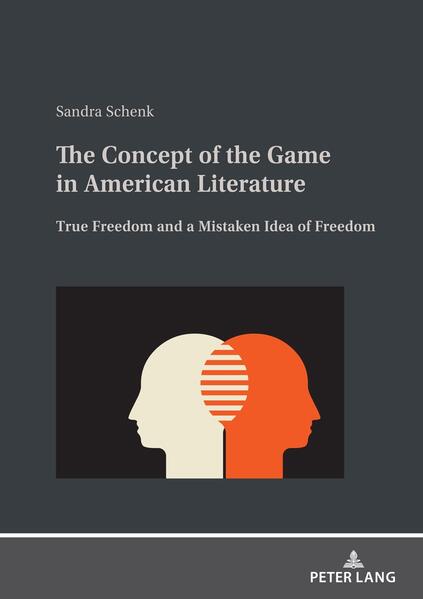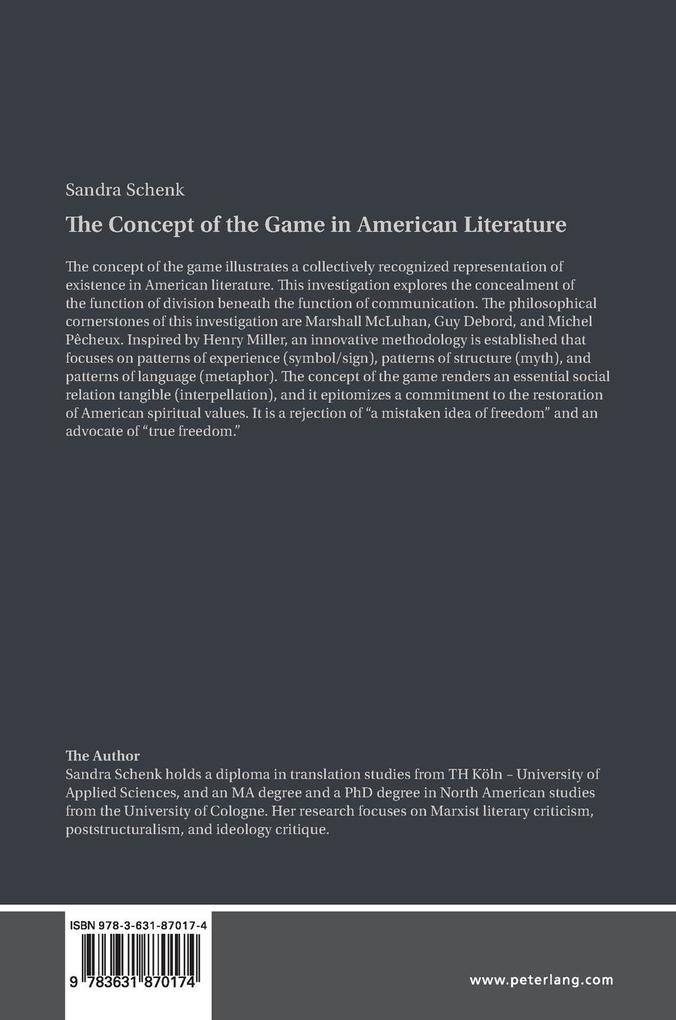
Zustellung: Mi, 02.07. - Sa, 05.07.
Versand in 1-2 Wochen
VersandkostenfreiBestellen & in Filiale abholen:
The concept of the game illustrates a collectively recognized representation of existence in American literature. This investigation explores the concealment of the function of division beneath the function of communication. The philosophical cornerstones of this investigation are Marshall McLuhan, Guy Debord, and Michel Pêcheux. Inspired by Henry Miller, an innovative methodology is established that focuses on patterns of experience (symbol/sign), patterns of structure (myth), and patterns of language (metaphor). The concept of the game renders an essential social relation tangible (interpellation), and it epitomizes a commitment to the restoration of American spiritual values. It is a rejection of "a mistaken idea of freedom" and an advocate of "true freedom."
Inhaltsverzeichnis
Preface / Unless We Make the Effort to Realize the Truths Which Are In Us We Shall Fail - Introduction. A Release from the Monopolistic Tyranny of the Social Machine - The Three Phases of Disfigurement - Illusion Only is Sacred: Chicago (1927) - The Visible Negation of Life: They Shoot Horses, Don't They? (1935) - All Individual Reality Has Become Social Reality: Nightmare Alley (1946) - A Lie Which Is No Longer Challenged Becomes Lunacy: One Flew over the Cuckoo's Nest (1962) - All It Says Is All There Is: Roller Ball Murder (1973) - The Power of the Spectacle: Farragut North (2009) - Conclusions. A Crisis of the American Spirit - Glossary - Bibliographical Reference - Film Reference - Table of Figures - Index .
Produktdetails
Erscheinungsdatum
20. Mai 2022
Sprache
englisch
Auflage
1. Auflage
Seitenanzahl
450
Autor/Autorin
Sandra Schenk
Verlag/Hersteller
Produktart
gebunden
Abbildungen
35 Abb.
Gewicht
690 g
Größe (L/B/H)
216/153/29 mm
ISBN
9783631870174
Entdecken Sie mehr
Bewertungen
0 Bewertungen
Es wurden noch keine Bewertungen abgegeben. Schreiben Sie die erste Bewertung zu "The Concept of the Game in American Literature" und helfen Sie damit anderen bei der Kaufentscheidung.










